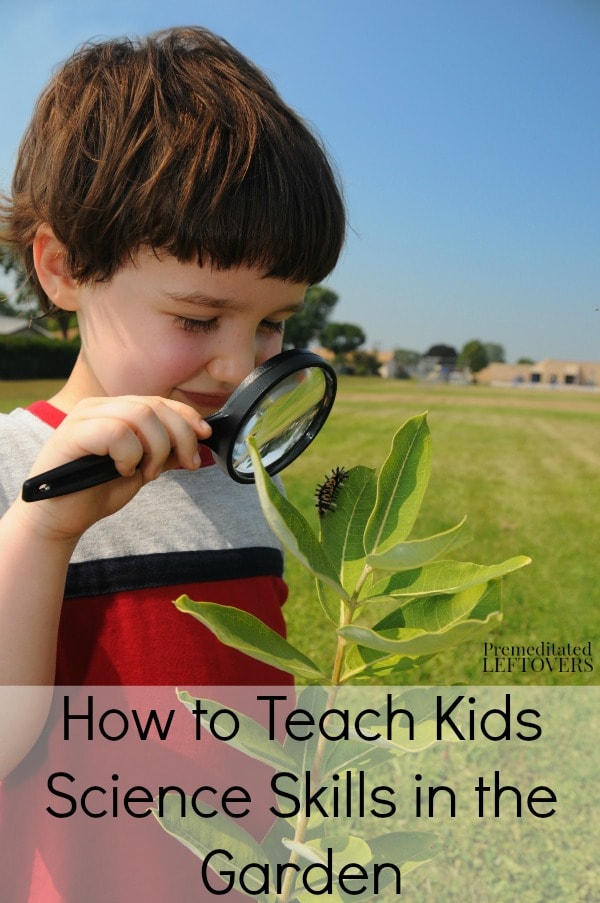There is no better way to learn science than to get out in the yard where it is unfolding! If you want to teach your children some new science concepts or reinforce the ones they already know, then head out to the garden where a hands on learning lab awaits you. If you are unsure about where to begin, take a look below at some helpful tips on how to teach kids science skills in the garden. It is the perfect place to see science come to life.
Before you begin, you will want a few basic supplies on hand. A spiral notebook, pens and markers, poster board, magnifying glass, a thermometer, and a rain gauge will all come in handy.
1. Explore the weather
Gardening and weather go hand in hand. You need to keep a close eye on the weather so you can be sure your plants are getting enough sun and water. Get into the habit of checking the weather forecast with your child each day. Examine weather patterns, check the daily temperature on a thermometer, and track water fall with a rain gauge. This is a great way to learn more about weather and how it affects your plants.
2. Conduct growth experiments
Does fertilizer really help plants grow? What about singing to them? Conduct growth experiments on your plants and see what seems to make the biggest difference. Use your notebook or a poster board to track the planting conditions, the tests you run on the plants, and what the outcomes are. It can be fun to compare various fertilizers or even see if singing to your plants makes them grow any faster!
3. Explore the secret world within your garden
Take the time to comb the garden for the bugs and critters that call it home. It is fun to see the world that is taking place under the plants and dirt. Use your magnifying glass to examine the critters closely and document your findings in your notebook.
4. Explore the life cycle of plants
Explore the changes a plant goes through from seed to fruit. Document the changes of the plants in your notebook, and sketch pictures if you so desire. It really is amazing to think that a tiny seed can grow into a massive watermelon or pumpkin even! Explore what causes these changes (sun, water, plant food) and discuss how the plants can’t survive without these elements.
5. Discuss natural garden products
There are so many non-chemical solutions to pest control. Explore some of these natural options and discuss how they are better for the plants and the environment. If you get the chance, try making some of your own to try on your garden plants! Kids will love mixing up their own concoctions.
There are so many opportunities to teach valuable science skills in your garden. Give these tips a try and turn your own garden into a classroom your kids will love.
More Science and Nature Activities for Kids
Tips for Going on a Nature Walk with Kids
How to Make a Portable Flower Press


Leave a Reply